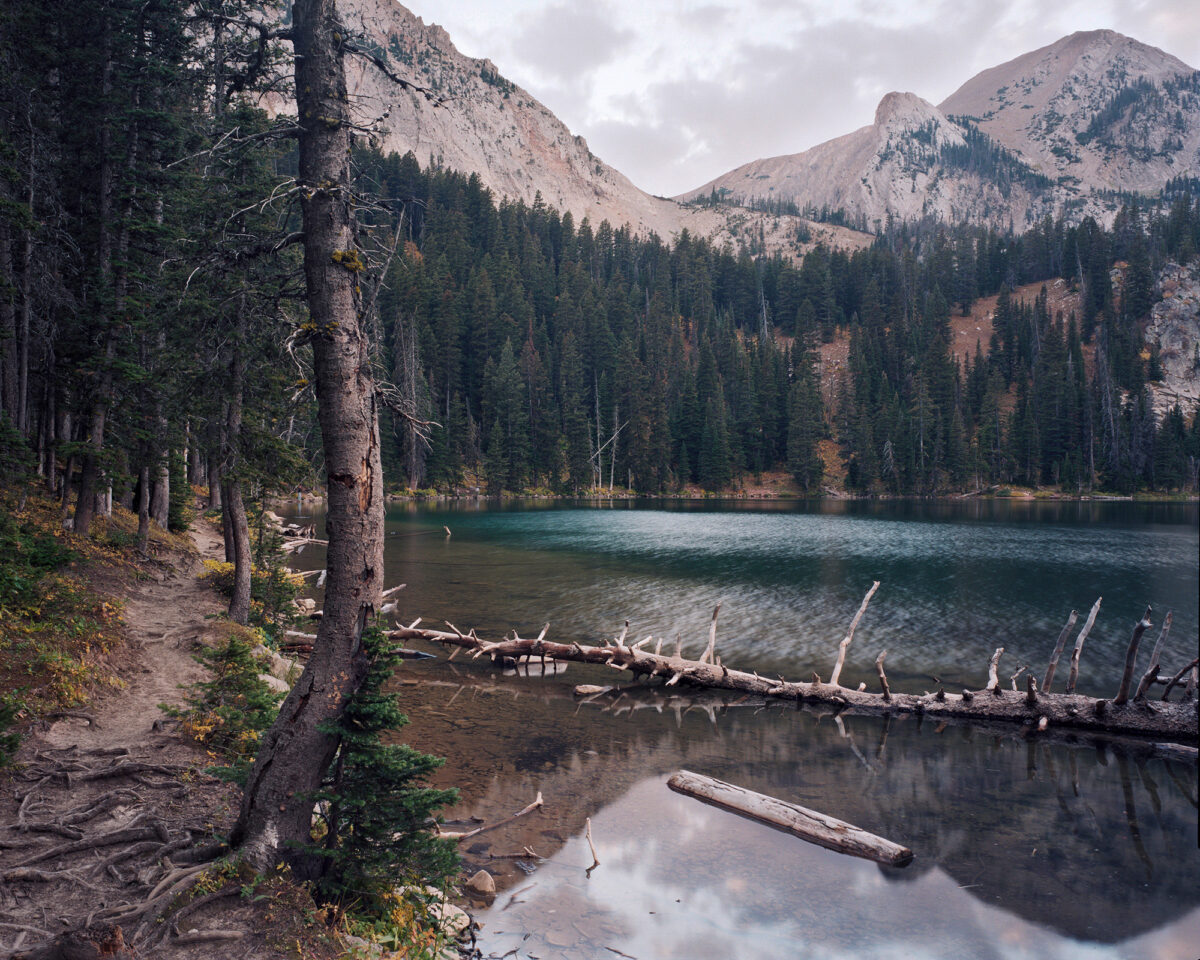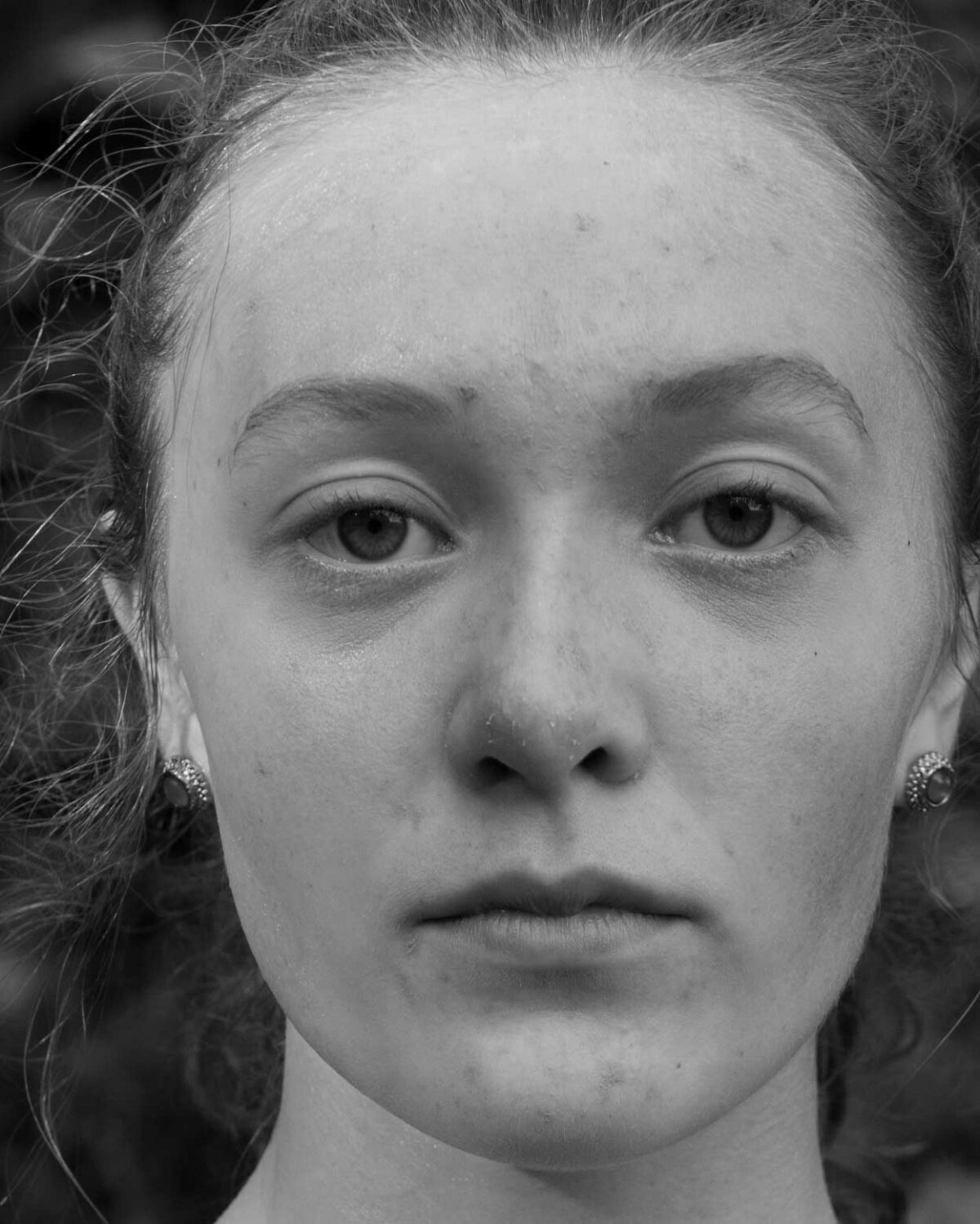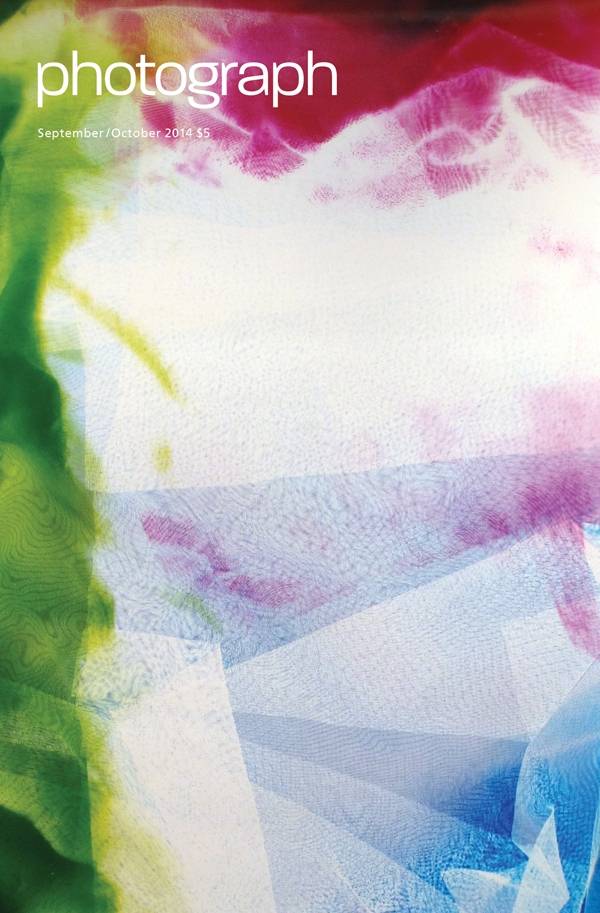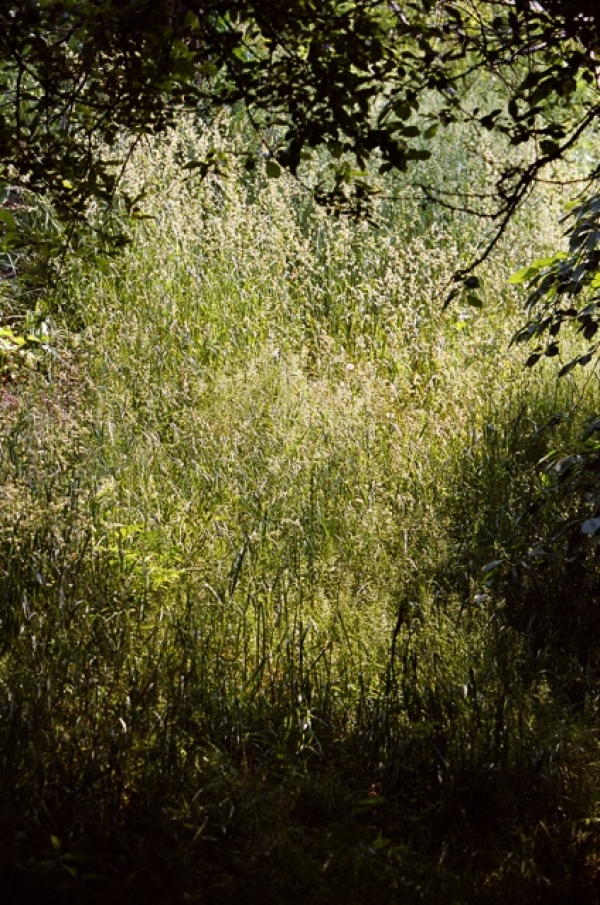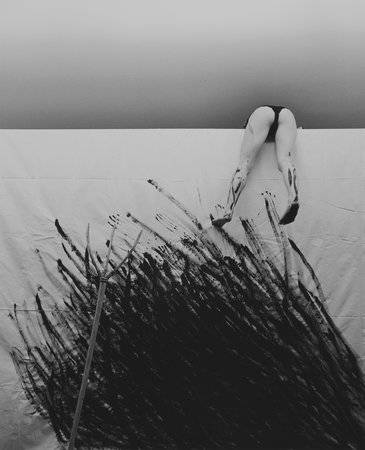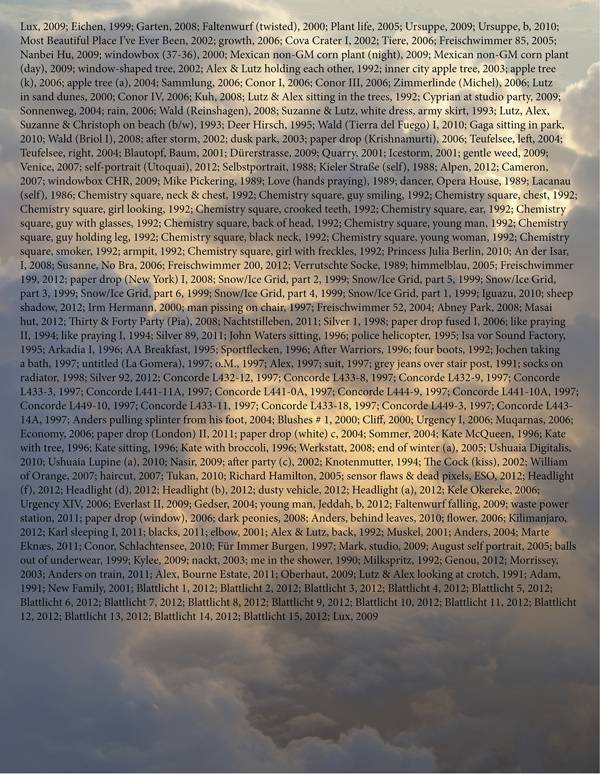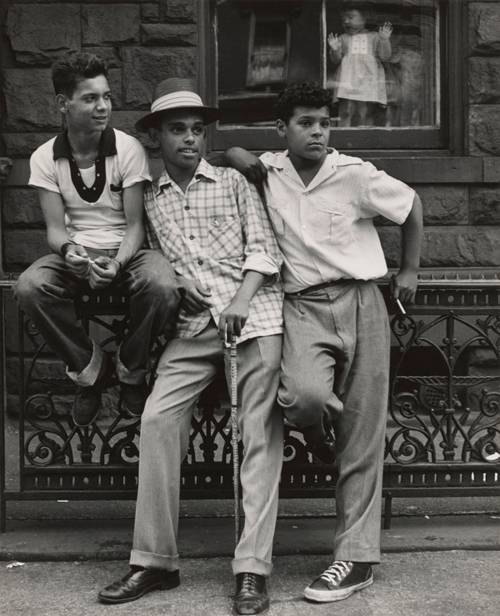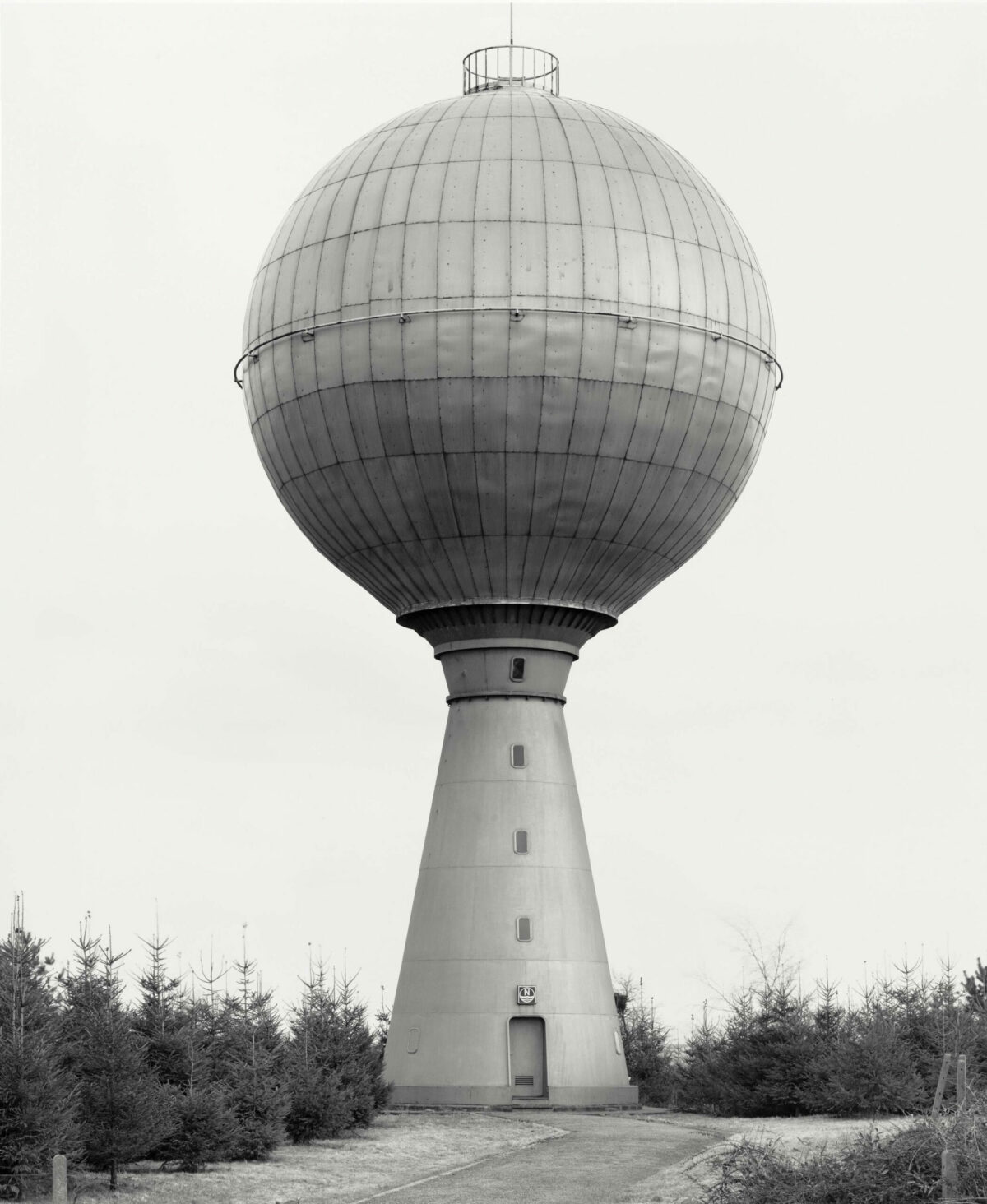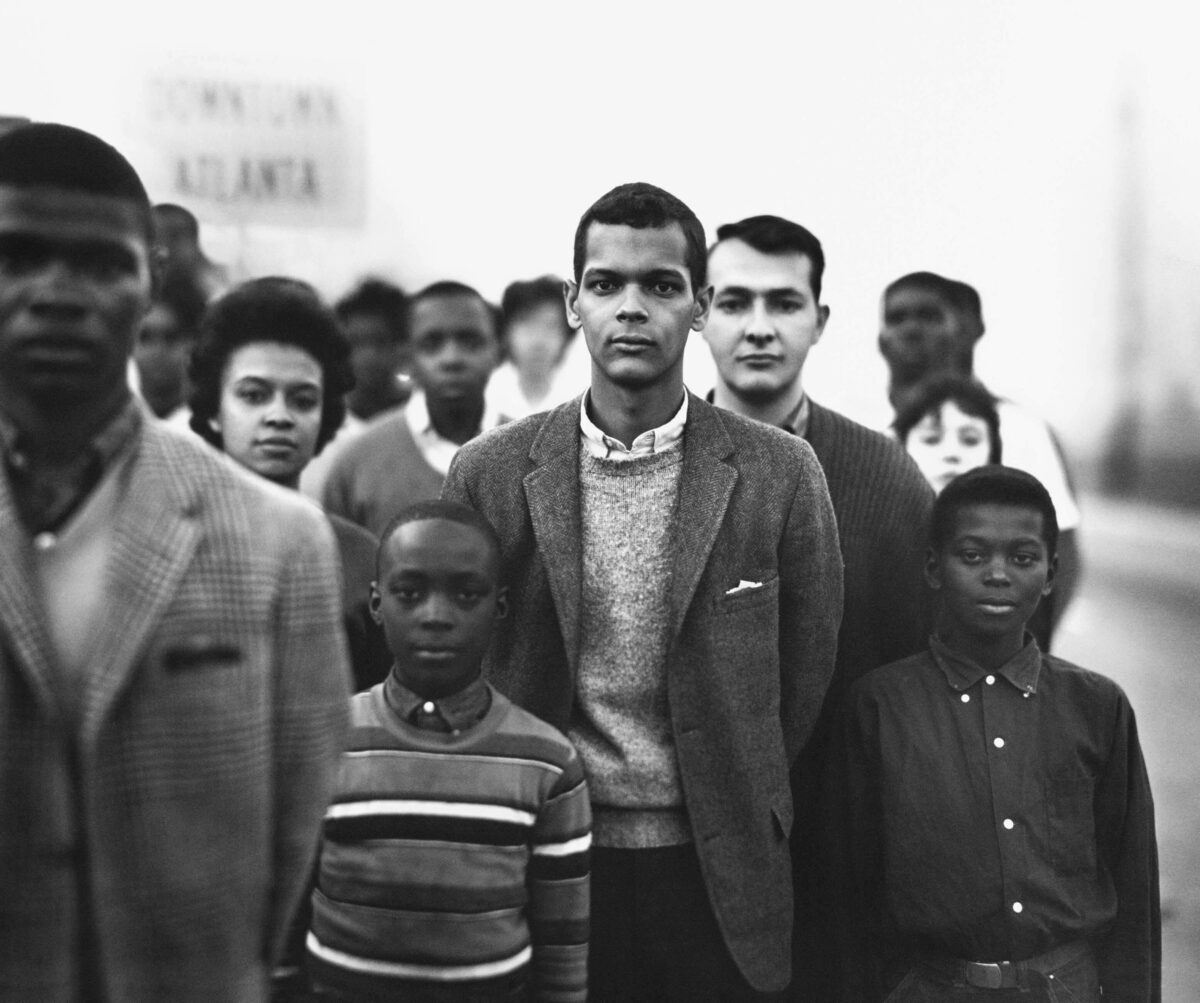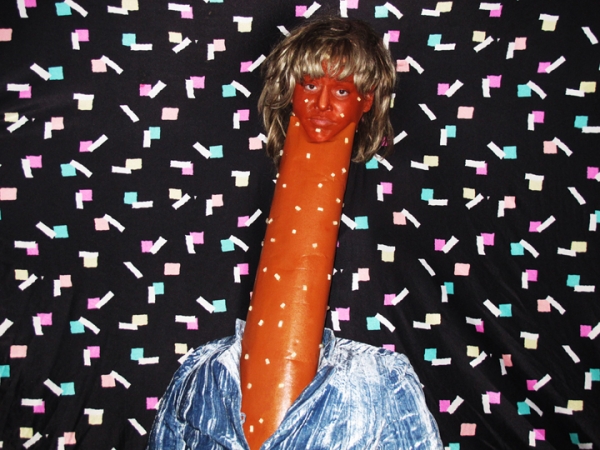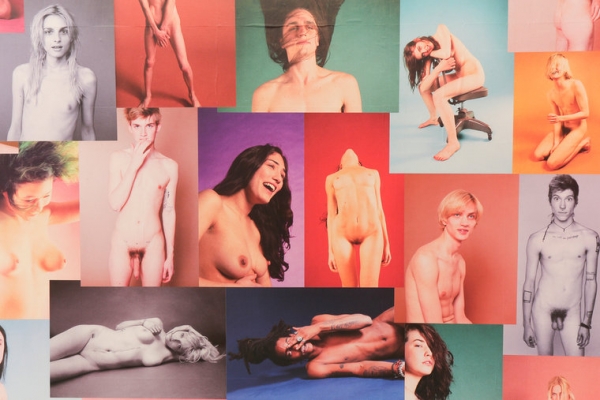

For Ryan McGinley’s third solo show at Ratio 3, the artist took full advantage of the gallery’s larger, and taller, new space by orchestrating an immersive installation of photographs. Yearbook is a lively display of crisp, poster-size studio portraits that have been wheat-pasted from floor to almost ceiling. These color images, all nudes, come from casting sessions for McGinley’s better-known road-trip works. The prints abut each other, with corners occasionally intruding on to other images, forming a vibrant wallpaper of his youthful retinue, a record of the individuals who have come through his studio in the last three years. Multiple shots of specific models, some apparently taken during different sessions, are peppered throughout and affirm the fact that this is a project that has grown in breadth over time. But the individual photographs are subsumed by the larger framework, which seems more about quantity than the visual power of single photographs.
The installation conceit paid off best at the opening, when the wrap-around view of naked youth provided a parti-colored backdrop for a packed house of clothed fans of similar age, not to mention a live band. The gesture extends the performative aspect of McGinley’s practice—he’s a director of good-natured social spectacles who harnesses a Warholian aspect of his own celebrity. Taken in quieter gallery hours, with fewer people, however, the installation is more introspective, though also somewhat inert. While we can scrutinize the lithe bodies and homemade tattoos that distinguish the subjects, there’s not quite enough going on in each of the technically accomplished works to communicate much about specific models. The group of them has the capacity to say something about a current generation of creative youth, but that promise never quite materializes.
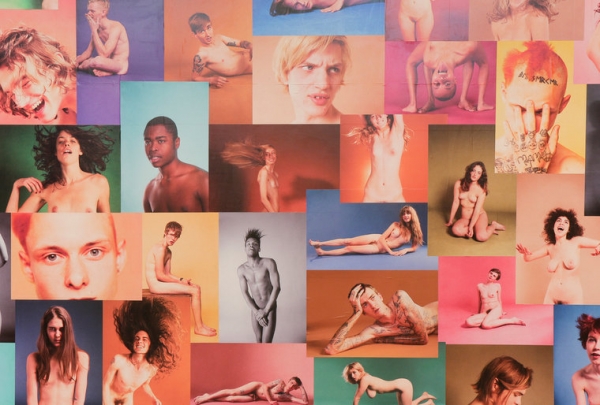

McGinley’s practice evokes a number of artists who have worked with ideas of sub-cultures and the photographer’s presence within them. The Yearbook pictures particularly nod to Catherine Opie’s formal portraits of regally outré members of a queer community of which she is a part. McGinley also captures the kind of cinematic party scene of Nan Goldin’s rosier pictures that have also been seen in salon-style hangings. McGinley’s work has always been most satisfying when it portrays exuberance, the abrasive majesty of the American landscape contrasting the vulnerability of the naked body. While it offers a sense of abundance, Yearbook is more hermetic in its atmosphere, and comes across like the before or after party, not quite the main event.

